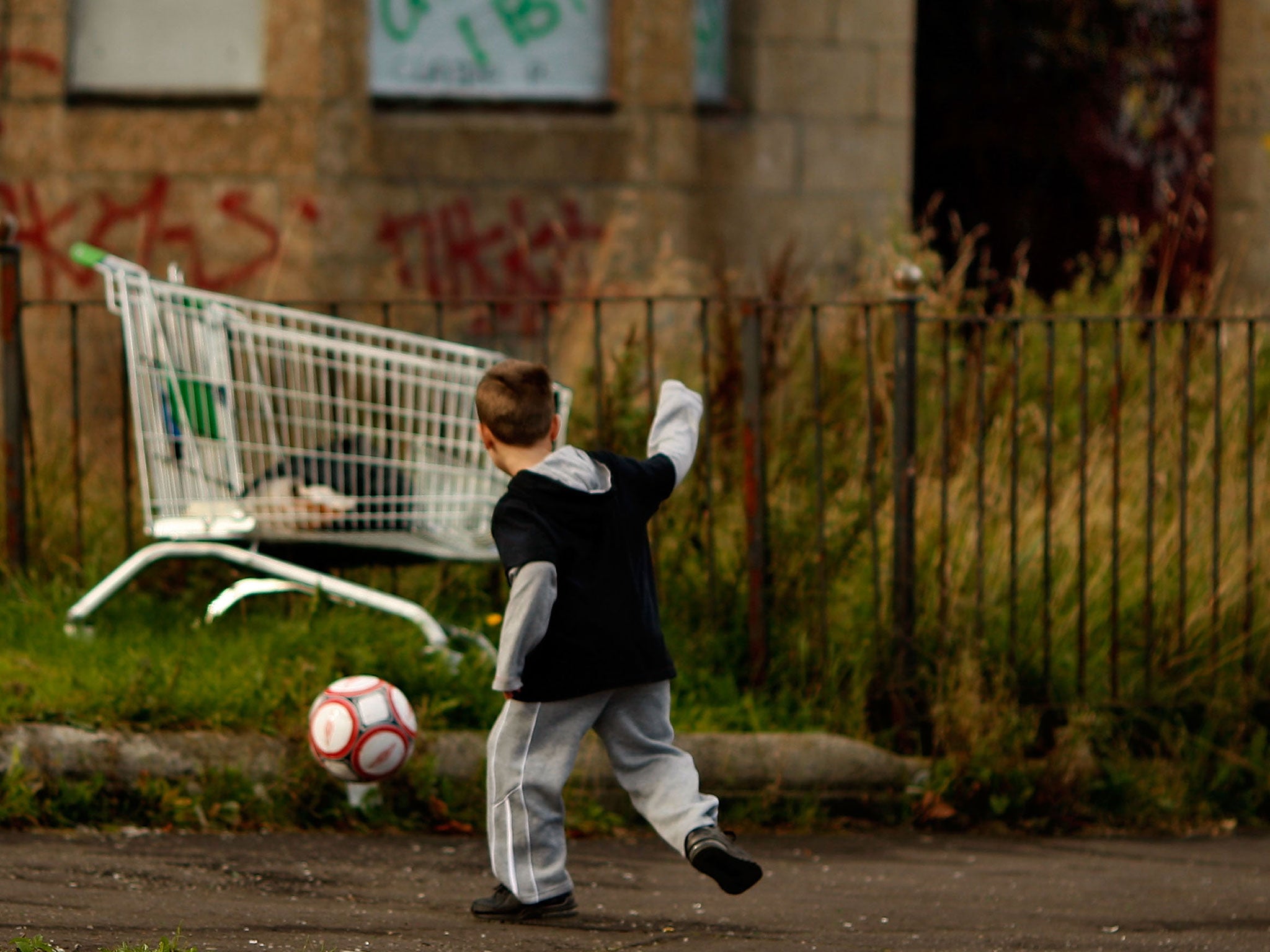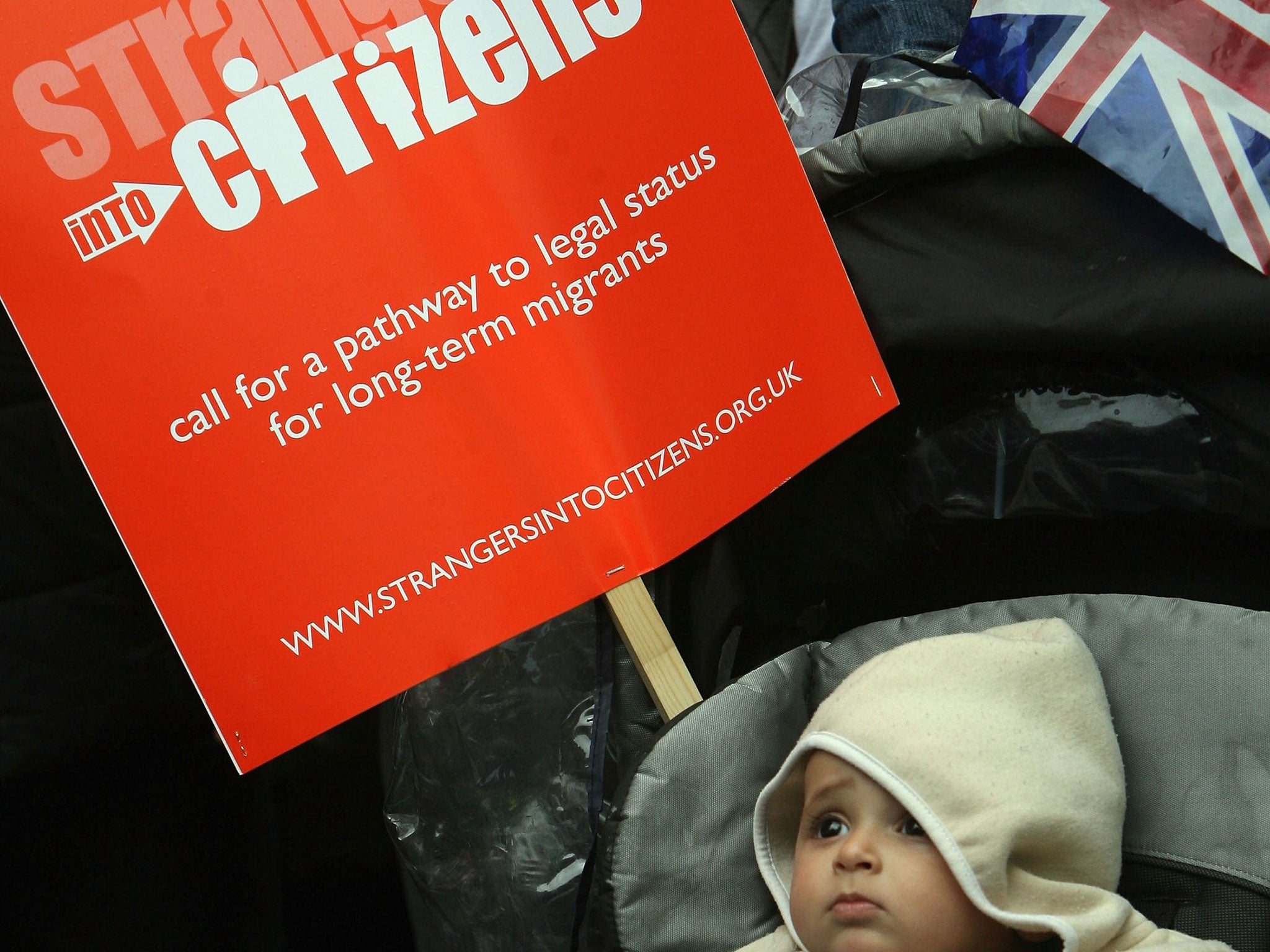Thousands of children in Britain being forced to live on £1 a day
There are 5,900 children in England and Wales living on the brink of total destitution because their parents cannot work or receive benefits

Thousands of children – many of whom are British citizens – are subsisting on as little as £1 a day because their parents are migrants with no recourse to public funds.
There are 5,900 children in England and Wales living on the brink of total destitution because their parents cannot work or receive government benefits, according to research from The University of Oxford’s migration unit. Charities say the situation is pushing vulnerable children into “severe poverty and hunger.”
In almost a quarter of the families affected at least one child is a British citizen, researchers from Oxford’s Centre on Migration, Policy and Society (COMPAS) found. Some go for months without receiving any help at all, forced to sleep in cars, disused buildings or even on the street.

Most of the families affected are here legally but awaiting a Home Office decision on their immigration case. Almost three-quarters (71 per cent) of the families helped by local authorities in 2012/13 had a decision on their immigration status pending.
Forbidden from working or receiving welfare, the only money many migrant parents can find to feed their children is a child poverty payout from social services, which can be as low as £5 a week for a family. If the local authority decides the child is destitute its family will also be given accommodation.
The Home Office does not help families while they wait for a decision on their immigration case unless they are seeking asylum - and it forbids them from working.
Local Authorities have an obligation to help all destitute children under the Children’s Act. The financial support, known as Section 17, is set by individual councils, often on a case by case basis.
Since councils’ budgets have been significantly cut back by central Government, these payments are frequently far below the necessary amount to live on. Payments typically range from £23 to £35 per child per week but this money has to feed parents too. If a family receives help from a foodbank the value of this is often deducted from the meagre council help, leaving them with just a few pounds a week for nappies and other essentials.
Matthew Reed, chief executive of The Children’s Society said: “The desire to be seen to be tough on immigration can often mean the government overlooks its legal obligation to recognise children as children. As a result, too often they and their families are being pushed into severe poverty and hunger. They are being made homeless, forced into over-crowded, inappropriate accommodation and even on to the streets.
“Some families aren’t even being assessed to determine what help they need or are entitled to. And if they do get support, it is too low and often at the discretion of local authorities. Recent cuts to legal aid and the Home Office’s slow decision making means children are being forced to live on this support for long periods of time. This must change.”
Experts believe the Government needs to step in and provide funding to protect children’s welfare in this situation. Mr Reed said: “It is critical that these families get the help they need and that the Government provides the funds necessary so local authorities can protect these children’s welfare. Children must be treated first and foremost as children — not as immigration statistics.”
Councils have to assess whether a family is eligible by working out if they are truly destitute. Researchers found social services often rejected cases with very little evidence.
Rita Chadha, chief executive of the Refugee and Migrant Forum of Essex and London (RAMFEL), said: “We see at least one client a day in this situation. They come in extremely distressed. We’ve seen children sleeping in church graveyards and disused shops. In many cases councils won’t give families money until prompted to by other agencies.”
More than a third of families surveyed survived on rudimentary council support for more than a year, largely due to lengthy waits for a decision from the Home Office. In 7 per cent of cases, families needed help for more than three years.
Jonathan Price, co-author of the report, said: “Even after they have started receiving Section 17 support, some children face long periods living on subsistence rates that are well below those deemed minimal for any other category of people in the UK. This raises real concerns about the long-term impact of poverty on these children.”
Price added: “These are vulnerable people. We found that, prior to receiving local authority support, children and families were living highly precarious lives and were sometimes subject to exploitation. Domestic violence was an element in many referrals.”
A Home Office spokeswoman said: “We welcome those who wish to make a life in the UK with their family, work hard and make a contribution. But family life must not be established here at the taxpayer's expense.
“We work closely with local authorities to ensure that immigration decisions in cases receiving local authority support are made as quickly as possible.
“In exceptional circumstances, or where people granted leave on family grounds show that they would otherwise be destitute, they are granted recourse to public funds.”
The study was based on a survey of 137 Children’s Services departments in England and Wales, as well as 105 voluntary sector organisations and 92 interviews.
How the children are pushed into poverty
Long delays at the Home Office mean decisions in immigration cases can often take years. Migrant families waiting to find out their immigration status are not given support by the Home Office unless they are asylum-seekers. They are also barred from working, which, if the wait takes several years, means they can quickly slip into poverty.
If children are destitute, local authorities are obliged to help regardless of the parents’ immigration status as part of their responsibilities under the Children’s Act. However, with no government funds for this help - or guidelines on the appropriate amount - many set the rates as perilously low as £1 a day per family member.
The majority of the families affected come from Jamaica and Nigeria. In some cases an immigration problem arises following the break-up of a relationship. Researchers found several examples of foreign mothers barred from receiving benefits but allowed to stay in Britain to bring up their British child after the father left.
Case study
A 26-year-old mother of two from Jamaica was recently helped by the migrant charity RAMFEL. The organisation’s chief executive, Rita Chadha, recalled: “We had a mother come in who was being given £5 a week by one East London borough to bring up a toddler and a newborn infant. They were living on that for eight months in the end. She was accessing food banks but she was struggling. If the food bank didn’t have nappies that week she was absolutely distraught.”
The mother had leave to remain in Britain but no recourse to public funds. Her two-year-old girl had a British father who absconded and was a British citizen. She was allowed to work but had two young kids and her ban from public funds included free childcare. She had come over from Jamaica 14 years earlier with her parents. When her father died and her mother returned to Jamaica, she was already settled and decided to stay.
Join our commenting forum
Join thought-provoking conversations, follow other Independent readers and see their replies
Comments
Bookmark popover
Removed from bookmarks